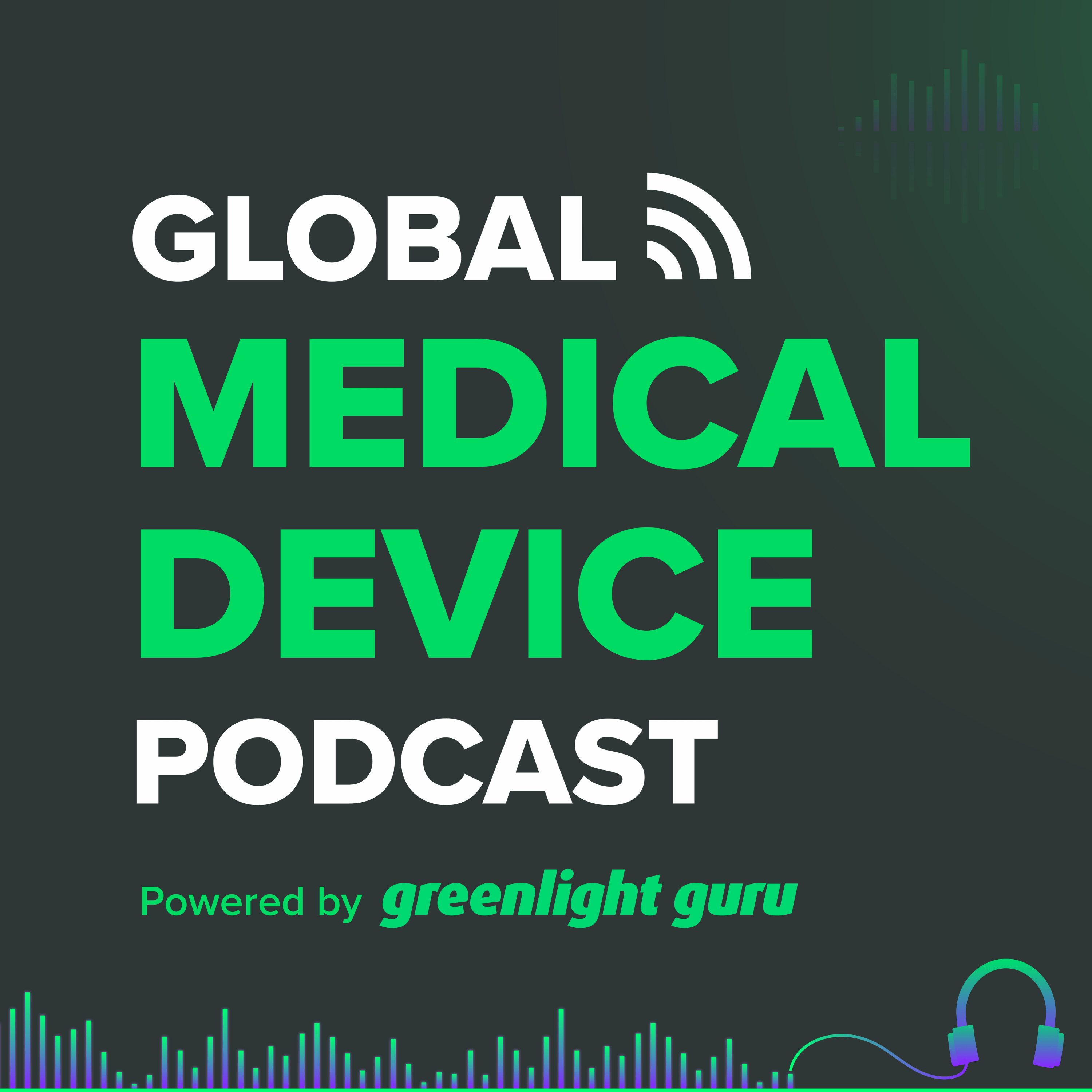Episode 427
#427: Medical Device Reimbursement - Pitfalls to Avoid
This episode tackles the often-overlooked but critical topic of medical device reimbursement. Host Etienne Nichols speaks with Haley King, co-founder and CEO of Paxos Health, about why this process is just as vital as FDA approval for a device's commercial success. They explore the journey a medical device takes, highlighting the distinction between FDA approval and securing reimbursement from payers.
Haley explains the three key pillars of reimbursement: coding, coverage, and payment. She delves into the complexities of CPT codes and the significant difference between a temporary Category 3 code and the gold-standard Category 1. The discussion also covers the immense challenges medical device companies face, including the lengthy timeline—sometimes years—to secure payer coverage, which can be a make-or-break factor for startups. The conversation wraps up with a look at how artificial intelligence is beginning to streamline the cumbersome, manual process of patient access and appeals.
Key Timestamps
- 1:45 - The initial challenge of making coverage match medical need.
- 3:30 - The three-part reimbursement pathway: coding, coverage, and payment.
- 5:50 - Navigating CPT codes and the difference between Category 1 and Category 3.
- 10:15 - Common challenges for medical device companies seeking payer coverage.
- 13:20 - The multi-year timeline to achieve Medicare coverage for innovative devices.
- 15:00 - Advice for regulatory and quality professionals on speeding up reimbursement.
- 20:10 - How AI is currently being used in patient access and reimbursement.
- 24:45 - Debating the accuracy of AI and its role in replacing human expertise.
Quotes
"A lot of times patients are not going to be able to pay out of pocket for expensive medical treatments, and a lot of times providers are not going to be able to write off those treatments on their side. So somebody needs to pay for this. And that's usually the health insurance companies..." — Haley King
"I think that for this sort of a use case [AI], you're always going to want some human in the loop... AI has the potential to be super, super powerful in this space, but I think you're always going to want to have human experts involved." — Haley King
Takeaways
- Integrate reimbursement strategy early: Unlike FDA approval, which focuses on safety and efficacy, payers also demand evidence of a device's clinical and economic value. Medical device companies, particularly startups, should integrate reimbursement planning into their pitch decks and product development timelines from the outset.
- Recognize the two-step process: FDA approval is not a golden ticket to reimbursement. Companies must understand the subsequent and often lengthy process of securing coding, coverage, and payment from payers like CMS and private insurance companies, which can take several years.
- Enhance clinical trials for payers: Regulatory and quality professionals can speed up the reimbursement process by designing clinical trials that not only meet FDA requirements but also generate robust data to prove a device's clinical and economic value. This may involve including additional endpoints to justify the cost.
- Harness AI for efficiency, not replacement: AI is a powerful tool for automating the tedious parts of reimbursement, such as sifting through patient records and payer policies. However, it should be viewed as a way to enhance, not replace, the work of human experts who can handle complex edge cases and appeals.
- Be aware of coding complexities: The distinction between a temporary Category 3 CPT code and a permanent Category 1 code is a major hurdle for innovative devices. Companies must be prepared for a potential multi-year journey to prove their device’s value to the American Medical Association (AMA) and payers.
References
- Paxos Health: Haley King’s company, which helps patients and physicians navigate insurance barriers for medical care.
- Current Procedural Terminology (CPT) Codes: The standardized language used by healthcare providers and payers to bill for medical services.
- Study on Payer Coverage: A 2023 study referenced in the episode, with authors including Josh Macaur and Dr. Erin Saxton, that found a nominal time of 5.7 years for innovative medical devices to achieve Medicare coverage.
You can also connect with Global Medical Device Podcast host Etienne Nichols on LinkedIn: https://www.linkedin.com/in/etienne-nichols-824a7114/
MedTech 101: The CPT Code Breakdown
Think of a CPT (Current Procedural Terminology) Code as a unique ID number for a specific medical procedure or service. When a doctor performs a treatment, they use this code to communicate with an insurance company (payer) what they did so they can get paid.
- Category 1 Codes are like the established, official ID numbers. They're for widely accepted procedures with proven clinical value and are typically covered by insurance.
- Category 3 Codes are like temporary ID numbers. They are assigned to newer, innovative procedures that are still being studied. They allow doctors to track the procedure's use, but they don't guarantee that insurance will pay for it. The goal is to collect enough data over time to upgrade to a Category 1 code.
Feedback Call-to-Action
Your feedback helps us create content that matters to you. Have a topic suggestion or a question about this episode? Please reach out to us at podcast@greenlight.guru. We read every email and appreciate your insights!
Sponsors
This episode is brought to you by Greenlight Guru, the only medical device success platform built specifically for MedTech companies. As discussed in this episode, getting your device to market requires more than just a great product; it needs a robust quality system and a clear path to market adoption. Greenlight Guru's QMS and EDC solutions are designed to streamline your development process from concept to commercialization, helping you secure the data needed for both FDA approval and payer reimbursement. To learn more, visit www.greenlight.guru.

